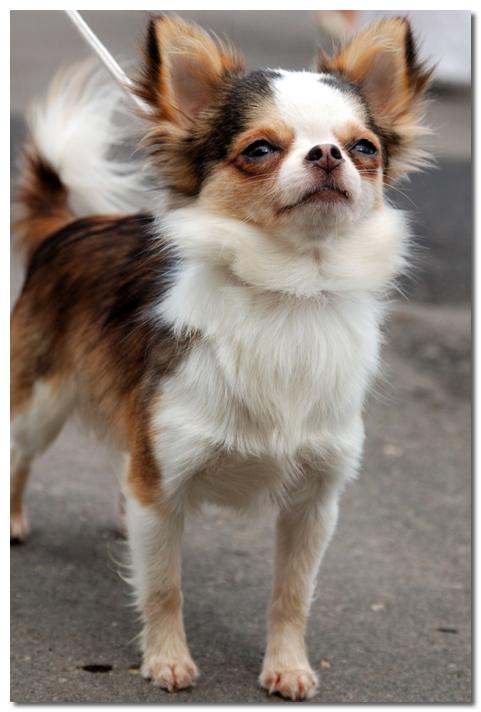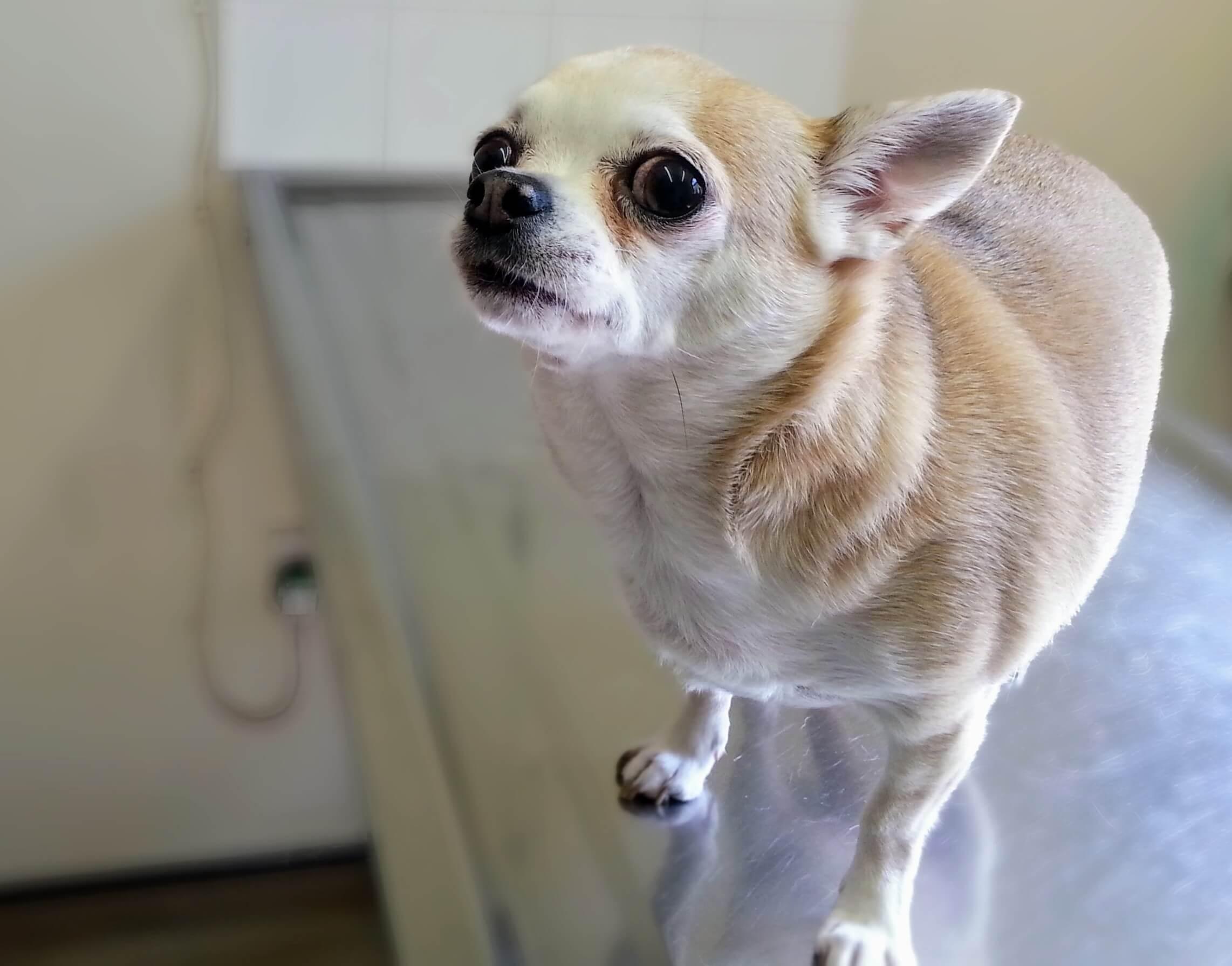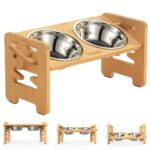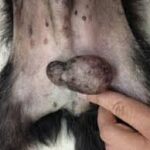Determining the age of your Chihuahua can be a bit of a puzzler, especially if you adopted your furry friend without any history. Understanding your pup’s age is crucial not only for tailoring their diet and exercise needs but also for providing the appropriate veterinary care they require at different life stages. As tiny as they are, Chihuahuas bring immense joy and love into our lives, and knowing their age can help deepen the bond you share.
In this guide, we’ll explore helpful tips and methods to estimate your Chihuahua’s age with ease. From examining their teeth and physical characteristics to observing behavioral traits, we’ll equip you with the insights needed to age your pup accurately. So, let’s embark on this journey to uncover the wisdom of your little companion and ensure they enjoy a happy, healthy life at every stage.
Table of Contents
- Understanding the Chihuahua Lifespan and Aging Process
- Key Signs of Aging in Chihuahuas to Look For
- How to Estimate Your Chihuahuas Age with Dental Health
- Practical Tips for Care Based on Your Chihuahuas Age
- Q&A
- Final Thoughts
Understanding the Chihuahua Lifespan and Aging Process
Chihuahuas are known for their small stature and vibrant personalities, but their lifespan and aging process can vary significantly from other breeds. On average, Chihuahuas live between 12 to 20 years, depending on a variety of factors such as genetics, diet, and healthcare. As your Chihuahua ages, they may experience changes in behavior, mobility, and health. Understanding these changes can help you provide the best care for your furry friend.
To gauge your Chihuahua’s age, consider the following signs of aging:
Physical Appearance: Look for graying fur, especially around the muzzle and eyes.
Behavioral Changes: Notice if your pup is less energetic or has become more irritable.
Health Issues: Be watchful for signs of arthritis, dental problems, or weight fluctuations.
Tracking health changes over time can create a clearer picture of your dog’s age. You may also refer to the following table for approximate age equivalents in dog years to human years:
| Chihuahua Age (Years) | Human Equivalent (Years) |
|---|---|
| 1 | 15 |
| 5 | 36 |
| 10 | 56 |
| 15 | 76 |
| 20 | 96 |
Key Signs of Aging in Chihuahuas to Look For
As your Chihuahua grows older, there are several noticeable changes that can help you gauge their age. One of the most prominent signs is graying fur, particularly around the muzzle and eyes. A younger Chihuahua usually boasts a vibrant coat, while aging can lead to a duller appearance and thinning fur. Additionally, you may observe decreased energy levels—whereas puppies are rambunctious and playful, older Chihuahuas may prefer short walks and cozy naps. Understanding these physical changes is crucial for providing the best care for your furry friend.
Behavioral shifts often accompany the physical signs of aging. Changes in appetite can indicate that your pup is experiencing age-related health issues. An older Chihuahua may show less interest in food or have difficulty eating. Another key sign is altered social interactions; they may become more clingy or, conversely, more aloof than their younger selves. Paying attention to these behavioral nuances, along with physical changes, can provide a clearer picture of your Chihuahua’s age and help tailor their care accordingly.
How to Estimate Your Chihuahuas Age with Dental Health
Understanding your Chihuahua’s age through their dental health can be a helpful tool for pet owners. Just like humans, dogs experience dental changes as they age. For Chihuahuas, you can look for specific indicators to gauge their age based on their teeth:
- Baby Teeth: Puppies typically have their baby teeth until about six months of age.
- Permanent Teeth: By six months, Chihuahuas should have all of their permanent teeth, which are usually white and clean.
- Dental Wear: As they age, teeth may show signs of wear, and tartar buildup is more common in older dogs.
- Gum Health: Healthy gums are typically pink, while older Chihuahuas may have darker or receding gums.
To make it easier to assess your Chihuahua’s dental health, consider the following table that outlines common dental conditions and their associated ages:
| Dental Condition | Approximate Age |
|---|---|
| All Baby Teeth Present | 0-6 months |
| All Permanent Teeth Erupted | 6-12 months |
| Some Tartar Buildup | 1-3 years |
| Significant Wear and Tartar | 4-6 years |
| Severe Gum Issues | 7+ years |
Practical Tips for Care Based on Your Chihuahuas Age
Understanding the needs of your Chihuahua as they age is crucial for ensuring their happiness and health. Puppies require a lot of energy and playtime, so it’s important to engage them with interactive toys and socialization opportunities. For young Chihuahuas, focus on establishing a routine that includes short, frequent walks and basic obedience training to foster good behavior. As your pup reaches their adult years, they will need a balanced diet tailored to their energy level. Look for high-quality dog food specifically formulated for small breeds, and remember to offer plenty of fresh water to keep them hydrated.
As your Chihuahua enters their senior years, adjustments in care are essential. Older dogs often experience joint stiffness, so consider incorporating gentle exercise like short, leisurely walks and playdates with other calm dogs. Additionally, regular vet check-ups become more vital; keep an eye out for any signs of discomfort or health issues. Feeding them a diet rich in omega-3 fatty acids can support joint health, while dental care remains a priority to prevent periodontal disease. Keep the following tips in mind:
- Senior Diet: Look for food with lower calories and higher fiber.
- Comfort Zones: Provide a soft bed and a warm space for rest.
- Routine Vet Visits: Schedule check-ups every 6 months.
- Regular Exercise: Maintain light, frequent activity without overdoing it.
Q&A
Q: Why is it important to know my Chihuahua’s age?
A: Knowing your Chihuahua’s age can help you provide appropriate care, diet, and exercise tailored to their life stage. Additionally, it can assist your veterinarian in diagnosing health issues and planning preventive care.
Q: How do I determine my Chihuahua’s age if I adopted them without any background information?
A: If you adopted your Chihuahua without an age record, there are several signs you can look for. Dental health is one of the best indicators; the condition of their teeth can help estimate age. Younger dogs typically have whiter and cleaner teeth, while older dogs may have more tartar buildup and potential tooth loss.
Q: Are there physical signs that can help me figure out my Chihuahua’s age?
A: Yes! In addition to dental health, you can look at their coat condition. Younger Chihuahuas often have a shinier coat, while older ones may have gray hairs, particularly around their muzzle and face. Mobility and energy levels also change with age—puppies are usually more energetic, while older dogs may be less active and more prone to stiffness.
Q: Can I use any specific dog age calculators to estimate my Chihuahua’s age?
A: Yes, there are dog age calculators that can help. While the common “seven years for every one human year” rule is a rough estimate, it’s more complex for smaller breeds like Chihuahuas. Chihuahuas tend to age more slowly than larger breeds in their early years and then age more rapidly as they get older. Most calculators use a formula based on size and breed to give a more accurate estimate.
Q: What if my Chihuahua is a rescue and may be older than I think?
A: If you suspect your Chihuahua is older than estimated, consult your veterinarian. They can provide a more accurate age assessment based on various health indicators, such as joint health, eye condition, and overall vitality.
Q: How does a Chihuahua’s age affect their healthcare needs?
A: Older Chihuahuas often require more frequent veterinary check-ups to monitor for age-related health issues, such as dental disease, arthritis, and heart conditions. Your veterinarian might also suggest changes in diet and exercise to accommodate their aging processes.
Q: Are there any behavioral changes that indicate my Chihuahua is getting older?
A: Yes, older Chihuahuas may exhibit changes in behavior, such as increased sleeping, changes in appetite, or decreased interest in play. They may also become more anxious or irritable due to physical discomfort or cognitive decline.
Q: What are some tips for caring for an aging Chihuahua?
A: Care for your aging Chihuahua by providing a balanced diet, ensuring regular veterinary visits, and adapting their exercise routine to meet their energy levels. Create a comfortable living environment with soft bedding and easy access to food and water. Mental stimulation through gentle play and interactive toys can also help keep their minds sharp!
Q: How can I help my Chihuahua live a long, healthy life?
A: Maintain a healthy diet, provide regular vet check-ups, ensure they get appropriate exercise, and pay attention to their mental well-being. Keeping their weight in check and ensuring they are socialized can contribute to their overall happiness and longevity.
By understanding and identifying the signs of aging in your Chihuahua, you can ensure they get the best care possible throughout their life stages!
Final Thoughts
determining the age of your Chihuahua can be a rewarding endeavor that deepens your bond with your furry friend. By combining knowledge of dental health, physical characteristics, and behavioral traits, you can gain valuable insights into your pup’s age and, consequently, their specific needs as they grow. Remember, age is just a number, and every stage of your Chihuahua’s life offers unique joys and challenges. Regular vet check-ups, proper nutrition, and ample love and attention will help keep your pup happy and healthy, no matter their age. So, embrace this journey of discovery, and cherish the precious moments you share with your beloved companion!

















